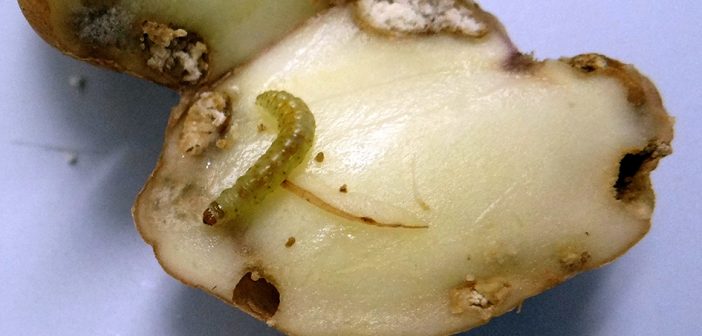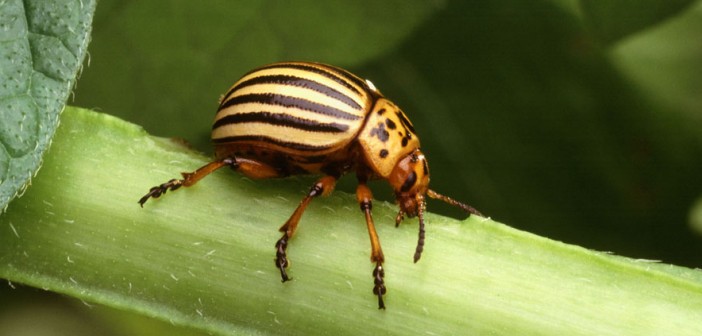The European Food Safety Authority (EFSA) Panel on Plant Health has categorised the Guatemalan potato tuber moth (Tecia solanivora (Lepidoptera: Gelechiidae)) as a Union quarantine pest for the EU.
- solanivora, which feeds exclusively on Solanum tuberosum, was first described in Costa Rica in 1973 and has spread through Central and northern South America via the trade in seed potatoes. It has also spread to Mexico, the Canary Islands and mainland Spain where it is under official control in Galicia and Asturias.
- solanivora is currently regulated by Council Directive 2000/29/EC, listed in Annex II/AI as Scrobipalpopsis solanivora. Larvae feed and develop within potato tubers; infested tubers therefore provide a pathway for pest introduction and spread, as does the soil accompanying potato tubers if it is infested with eggs or pupae.
Defra has published a fact sheet on the Guatemalan potato tuber moth, but EFSA points out that there are uncertainties over the effectiveness of preventing illegal imports via passenger baggage and the magnitude of potential impacts in the cool EU climate.

Photo Credit: Cornell University
The post New EU guidance on potato tuber pest appeared first on Hort News
